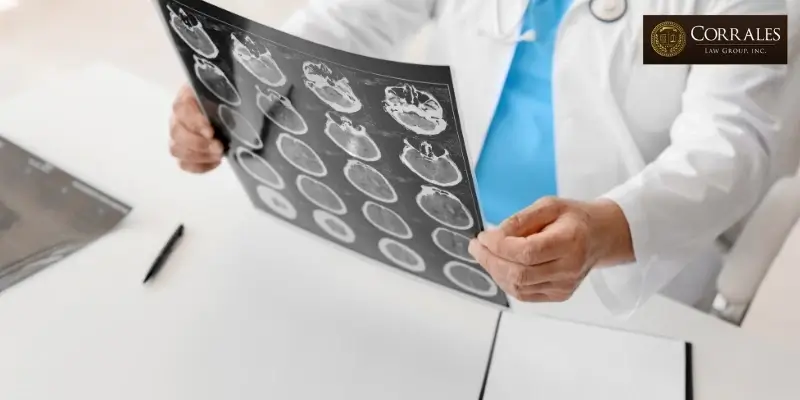Orange County Traumatic Brain Injury Lawyer

Orange County Traumatic Brain Injury Attorney
Traumatic brain injuries (TBIs) represent a serious and often life-altering condition resulting from external forces impacting the head. These injuries can drastically affect every aspect of a person’s life, from their physical health to their emotional and financial well-being. In Orange County, if you have suffered a TBI in an accident from negligence or due to intentional harm, it’s crucial to seek legal guidance from an Orange County traumatic brain injury lawyer.
Why Choose Us?
A successful outcome in a traumatic brain injury claim depends on selecting the appropriate legal counsel. Our Orange County brain injury lawyers are well-versed in the complexities of these situations and offer a plethora of knowledge and history. Since every TBI situation is different, we take satisfaction in providing each client with individualized care.
Our strategy includes working with financial and medical professionals, conducting a comprehensive investigation into the events leading up to your injuries, and tenaciously advocating on your behalf to make sure your needs are satisfied. We aim to lessen the load on our personal injury clients and fight for the justice they are due by emphasizing both strong legal counsel and caring care.
What Is a Traumatic Brain Injury?
A TBI is a form of brain damage caused by a sudden and forceful impact on the head. TBIs can be classified into two main types: closed and open.
Closed brain injuries occur when the skull is not penetrated, but the brain is still affected. Common causes include car accidents, falls, and sports-related injuries. Within this category, injuries such as concussions, diffuse axonal injuries, and intracranial hemorrhages are frequently observed.
Open brain injuries occur when an object penetrates the skull and directly damages the brain tissue. This kind of injury is often associated with high-impact incidents, such as gunshot wounds or assaults with blunt objects. Open brain injuries are particularly dangerous and can cause permanent disabilities or death. The severity of these injuries typically requires immediate surgical intervention and long-term medical care.
Effects of a Traumatic Brain Injury on a Person’s Life
The consequences of a TBI can be profound and far-reaching. Physically, a person may experience persistent headaches, nausea, dizziness, or seizures. Cognitive impairments might include difficulties with memory, concentration, and problem-solving. Emotional and behavioral changes are also common, with individuals possibly facing mood swings, irritability, depression, or anxiety.
These effects can disrupt daily life, making it challenging to maintain relationships, perform job duties, or carry out routine activities. For some, the injury may lead to a loss of independence and require ongoing assistance from caregivers or support systems. The impact on your life can be quite significant, often requiring long-term therapy and rehabilitation to help individuals adjust to their new realities.
Damages the Injured Party May Need
When pursuing a TBI claim in Orange County, there are a myriad of damages an injured person can pursue. Some of the damages include:
- Medical expenses. This includes costs for immediate medical care, hospital costs, surgeries, medications, and ongoing treatments. Long-term care, including physical therapy and rehabilitation, may also be part of the claim.
- Rehabilitation costs. Victims often need tailored therapy to recover or manage their condition. This may include occupational therapy, speech therapy, or neuropsychological counseling.
- Lost wages. If your injury impairs your ability to work, you may be entitled to compensation for lost income during your recovery period. When an injury affects your earning potential, future lost wages might be claimed as well.
- Physical pain and emotional suffering. This compensates for any pain and emotional trauma caused by the injury. It reflects the non-economic impact on your life.
- Ongoing care. For severe TBIs, lifelong care and assistance may be necessary. This can include home modifications to accommodate disabilities, personal care services, and specialized medical equipment.
Responsible Parties in TBIs
Determining liability in a TBI case depends on the specifics of the incident that caused the injury. Common responsible parties may include:
- Drivers of vehicles who may have struck you in a car accident.
- Property owners if your injury was a result of poor safety conditions or hazardous situations.
- Employers in the case of workplace accidents.
- Third parties, such as manufacturers or distributors of defective products, if the product caused the industry.
- Individuals who inflicted physical harm, especially if done so intentionally.
FAQs About Orange County, CA Traumatic Brain Injury Laws
What’s the Most a Lawyer Can Take From a Settlement?
Lawyers usually take cases on a contingent fee basis, which means they get paid a portion of the settlement or judgment. The precise amount may differ, although it is usually capped by the state and specified in the client-attorney agreement. It’s critical to review and comprehend these concepts prior to retaining legal counsel.
Is TBI Eligible for Special Monthly Compensation?
A TBI is not eligible for special monthly compensation. However, depending on the severity of their damage and their unique situation, people with severe TBIs could be qualified for benefits under different disability programs or veteran compensation schemes. These benefits are intended to give people with severe impairments financial support.
Can You Recover 100% From a TBI?
Individuals recover from traumatic brain injuries in different ways. Some may recover significantly and resume their prior level of functioning, but others may be permanently disabled or have long-term health issues.
The degree of recovery is dependent on a number of factors, including individual factors, prompt treatment, the age and health of the injured individual, and the severity of the damage. A full recovery is not always achievable, depending on the circumstances.
How Is TBI Severity Calculated?
A TBI can be diagnosed using a number of techniques, such as symptom analysis, imaging testing, and medical evaluations. The Glasgow Coma Scale, which gauges consciousness, and neuroimaging methods like CT or MRI scans, which detect brain injury, are frequently used instruments. The severity affects long-term prognosis and treatment strategies.
Contact Corrales Law Group
Suffering a traumatic brain injury is a life-altering experience. If you have encountered damages as a result of your injuries, Corrales Law Group can help you recover compensation. Contact us today for more information.
Corrales Law Group
Contact Us Today
Fields Marked With An “*” Are Required
"*" indicates required fields

